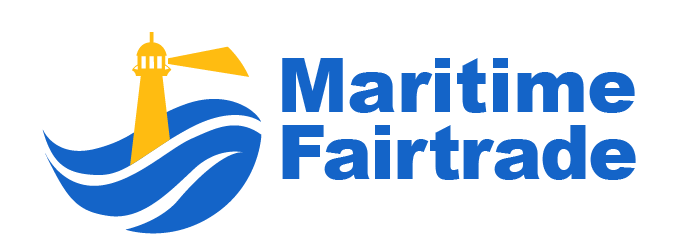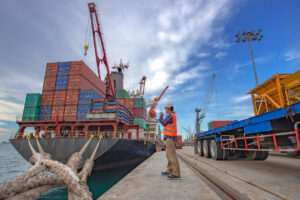The Chinese Communist Party (CCP)’s human rights violation is on full display in Xinjiang. Officials are waging a targeted campaign against Uyghur women, men and children, and members of other Turkic Muslim minority groups, using forced disappearance, arbitrary detention in internment camps, coercive population control, torture, physical and sexual abuse, mass surveillance, family separation, and repression of cultural and religious expression.
The CCP’s human rights violation also happened across China including in Hong Kong, Tibet and Inner Mongolia, among others. In Xi’an, a city with 13 million residents under strict lockdown since December 23 2021 because of the pandemic, on January 1, an eight-month pregnant woman was refused emergency medical care, waited four hours outside the hospital and had a miscarriage. On January 3, a man having a heart attack died after he was denied entry to a hospital amid tight control. These two incidents are only the tip of the iceberg.
Be that as it may, there are still global companies who are turning a blind eye to this blatant human rights violation. They are prioritizing profits and market access over universal values which are embodied in their internal social responsibility commitments.
These are companies who preach social justice in western democratic countries but kowtow to the totalitarian CCP. This is hypocrisy. And these unethical brands will suffer reputational and financial damages, as well as face increased political risk in a communist regime hostile to capitalism.
A hostile communist regime
Xi Jinping, secretary general of the CCP, is taking on China’s capitalists and has pledged to reign in private businesses as he fears that they are growing too rich and powerful and whom he sees as a threat to his dominance. In Communist China, politics dominates every aspect of the economy and society.
However, businesses need a high level of innovation, openness and entrepreneurship to thrive but Xi is politically driven to implement adverse policies detrimental to the private sector.
Because of Xi’s actions, the economy is not doing well. Chinese premier Li Keqiang stated on January 5 that “The government must tighten its belt” in a slowing economy. Xi’s regulatory crackdowns on the technology, finance, education and entertainment sectors wiped out US$1 trillion’s worth of value from Chinese companies on global markets. The crackdowns also triggered huge job retrenchments among many companies.
Due to the slowing economy, the government even has to cut the pay of civil servants in regions like Zhejiang, Guangdong, Jiangsu, Shanghai, Fujian and Tianjin. It is speculated that this cut in pay, ranging between 20 to 30 percent, will extend across the country to include even employees at state-owned companies. The number of civil servants is estimated at 30 million while the number of employees at state-owned companies is estimated at 55.6 million. With job losses and declining incomes, consumers will be less willing to spend.
The economy is struggling with real estate woes brought on by the default of Evergrande on a massive US$300 billion debt. The property sector, which accounts for a third of China’s GDP and with developers taking on too much debt and being unable to repay, is now in a crisis with major players on the brink of collapse.
The tight lockdowns and zero Covid strategy are also taking a toll on the economy. Samsung and Micron, two of the world’s biggest chipmakers, warned of disruptions to their operations in Xi’an, a major industrial hub.
In an indication of the negative sentiment on investing in China, on January 5, Jeffrey Gundlach, billionaire bond investor, in an interview with Yahoo Finance, said China is “uninvestible”, adding that “I don’t trust the data. I don’t trust the relationship between the United States and China anymore. I think that investments in China could be confiscated. I think there’s a risk of that.”
Xi Jinping is destabilizing China
In the face of backlash from global democratic countries, the CCP in an act of defiance continues to violate international norms. The CCP’s provocative actions keep increasing tensions in the Taiwan Strait and in the East and South China Seas; and wolf warrior diplomats are constantly lashing out at countries that do not bend to Beijing’s will, thus straining diplomatic relations.
All these actions do not instill business confidence but instead threaten the very rules-based international order that ensures peace, stability and prosperity for Chinese citizens as well as people around the world.
Xi, a dictator who is building a cult of personality and has paved the way for lifelong rule, does not bring stability to China. Quite the opposite, in his quest for power, he is harming the economy and his regime is eroding the pillar of good governance. In making himself the only center of power, the cost to the country is a political system not capable of taking care of the public but which is rift with infighting.
Instead of looking after the economy and focusing on economic development to ensure prosperity for the country, Xi is spending time, effort and resources to rein in rival factions, ruling elites, and security and military agencies. He has to make sure they do not grow powerful enough to challenge him. He is paranoia and he obsesses over potential rivals and even clamped down on business tycoons like Jack Ma and Pony, who are rich, famous and popular, and whom he perceived as a threat.
By stifling criticism, hollowing out other power centers who can act as a check and balance, and parachuting loyalists, chosen because they are weak and incapable, into the judiciary, legislative and executive branches of the government, and exerting total control over the private sector, Xi is taking China backwards.
In this perfect storm of Covid-19 outbreaks, tight lockdowns, slowing economy, repression and political minefield, the risk of investing and doing business in China has increased significantly.
Photo caption: Hong Kong, China – October 18, 2014: In this file photo, a pro-democracy protester is pushed to fall on his knees by riot police near occupied area in Mongkok district.










